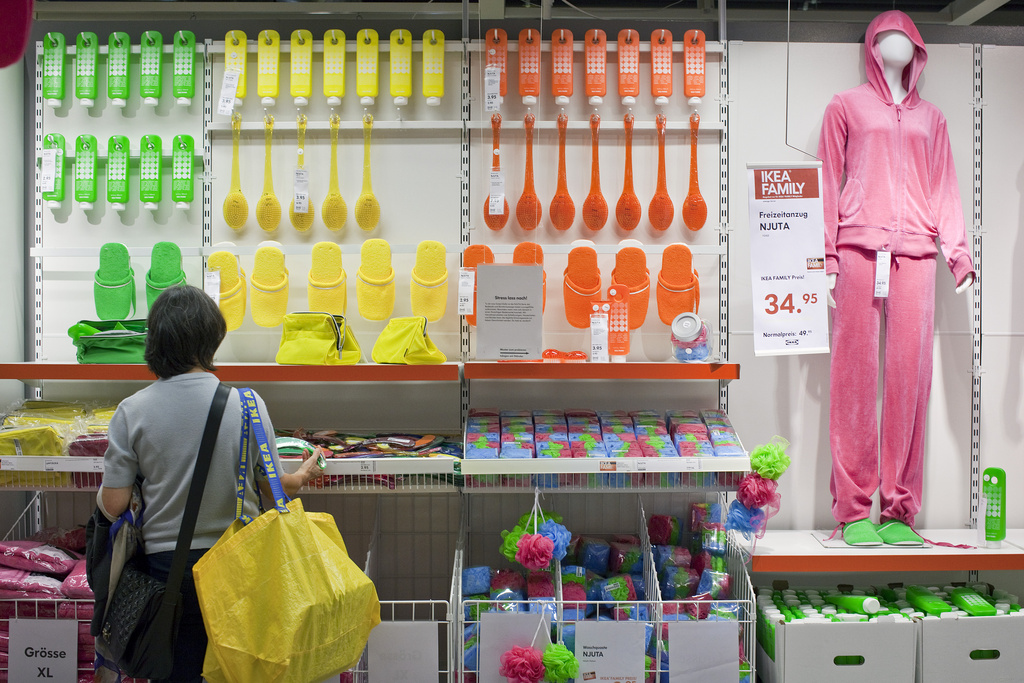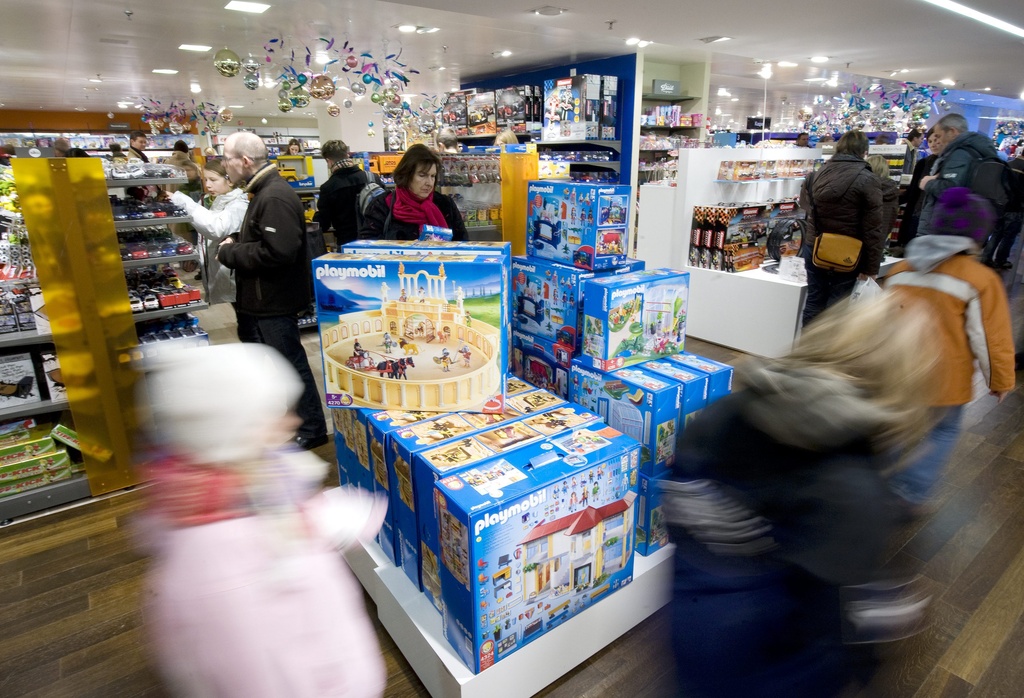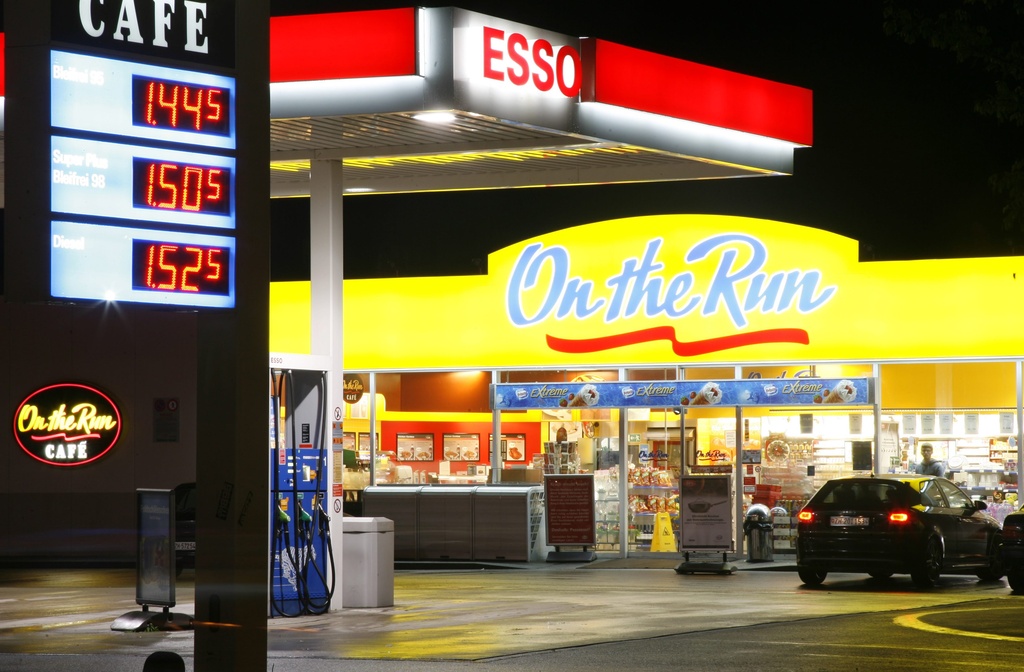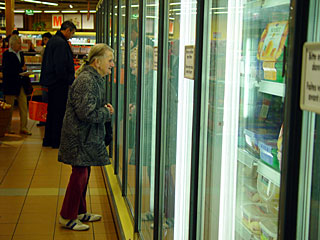Swiss urged to leave wallets at home

Buy Nothing Day, an international protest against unbridled consumerism, was marked on Saturday in more than 60 countries, including Switzerland.
swissinfo.ch speaks to the Swiss event’s organiser, the founder of a Buy Nothing Christmas initiative and asks a retail expert whether it’s all just a waste of time.
“The philosophy is to object to the current trend, dictated to us by most Western governments, that a good citizen is one who buys a lot,” said Pietro Majno from the Swiss Growth Objection Network, which is organising events across the country.
The first Buy Nothing Day was organised by Canadian anti-consumerist organisation Adbusters in 1992 and was held for the first time in Switzerland in 2008.
“In Geneva there will be a stand where people can barter things without using money,” Majno told swissinfo.ch. “They are encouraged to exchange something immaterial, for example knowledge, good experiences – you could exchange a list of your ten favourite books for a list of ten favourite films or walks.”
Majno, a doctor, says he could exchange advice on losing weight or keeping fit with someone who would give him, say, a recipe.
“We want people to reflect on the role of money in our society, in which people think that if something doesn’t have a price, it doesn’t have any value.”
Gaining ground
Majno denies meeting resistance from businesses or retail associations. “It’s more condescension. They say the main argument against [such events] is that if people don’t buy anything, unemployment soars,” he said.
“We’re told we’re just happy dreamers who are completely unrealistic. I object to this, because for me the unrealistic thing is living outside our budget as humans, causing damage to the environment and society.”
Critics also argue that people simply make their purchases the following day. Does Buy Nothing Day actually have any effect?
“In practice, on the amount of things that people buy on that day, no,” he admitted.
“But it makes them think about their relationship with money. Ideas like this are gradually becoming not just the eccentricities of a few intellectuals – more and more people are realising that there is no alternative to decreasing the use of resources and energy, and that must involve a complete rethinking of our relationship with objects.”
Symbolic gesture
Dimitri Wittwer, a marketing expert at Bern University, says that to estimate retailers’ losses, one has to differentiate between two effects: the immediate loss on the day itself and the change of the customers’ attitudes towards purchases.
“The former is not what really hurts retailers because their loss will only result in a decrease in spontaneous purchases – customers can easily purchase what they really want and need the day after,” he told swissinfo.ch.
“The latter, however, can cause a change in the attitude towards consumption and so have a negative impact on sales in the long run.”
For Wittwer, Buy Nothing Day is a symbolic way of criticising capitalism. “I don’t think it achieves a change in Western customers’ attitudes. It offers consumers an easy way to help make the world better and it gives them a better conscience.”
No ho ho
Earlier this month a study by accountancy firm Deloitte showed that while most Europeans will be cutting costs this Christmas, the Swiss will be spending 1.2 per cent more than last year on presents, food and going out.
According to a parallel study by Ernst & Young, the Swiss budget just for gifts was now SFr301 ($300) a head, up from SFr267 last year.
Aiden Enns took the “buy nothing” concept a step further and in 2001 launched a campaign with fellow Mennonites – a Protestant faith with historical roots in Switzerland – for a Buy Nothing Christmas.
“I’m disturbed by a society-wide agreement to over-shop, especially in December. In Canada and the United States, shopping has become a leisure activity and an obsession, which is legitimised in our gift-giving rituals,” the Canadian founder of Geez magazine told swissinfo.ch.
“When I was working at Adbusters in 2001, I saw how successful the Buy Nothing Day campaign was, and thought it should be rolled out for the whole Christmas shopping season,” he said.
“Also, because I’m a Christian, I wanted to make a statement that not all Christians celebrate excessive consumption in the name of their religion. It’s absurd to shop at toxic levels in the name of the child that was born to bring peace to the world.”
Solidarity and hope
Enns acknowledges that despite his views he still buys something almost every day.
“This astounds me. So on Buy Nothing Day I can pay attention to this contradiction and strengthen my resolve to live differently,” he said.
“Plus, it gives us a sense of solidarity and hope, that consumerism need not be the reigning social practice. Maybe care for our neighbours and the earth’s resources can be our orientation. I hope so.”
The first Buy Nothing Day was organised in Vancouver in September 1992 “as a day for society to examine the issue of over-consumption”, according to Adbusters, a Canadian anti-consumerist organisation.
In 1997, it was moved to the Friday after American Thanksgiving (held on the fourth Thursday of November), also called “Black Friday”, which is one of the ten busiest shopping days in the United States.
Internationally, Buy Nothing Day is observed the following day, Saturday. This year events are taking place in more than 60 countries.

In compliance with the JTI standards
More: SWI swissinfo.ch certified by the Journalism Trust Initiative







You can find an overview of ongoing debates with our journalists here. Please join us!
If you want to start a conversation about a topic raised in this article or want to report factual errors, email us at english@swissinfo.ch.